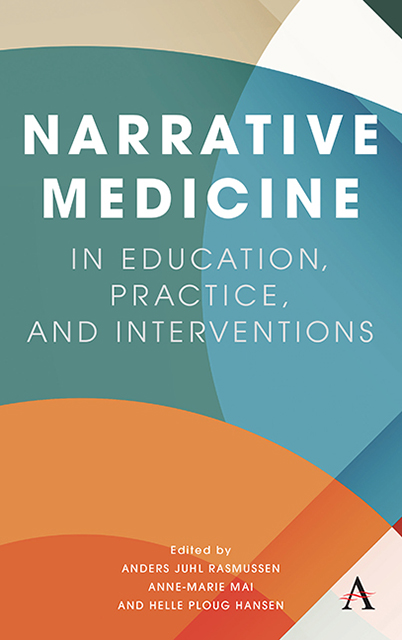Chapter 1 - Is Teaching Empathy Possible?
Published online by Cambridge University Press: 08 June 2023
Summary
This chapter focuses on whether and how empathy can be taught and uses the question as a point of departure to discuss the means whereby teaching the reading of literary texts with medical students and other health professionals can be con-ducted. The chapter starts by presenting those methods most often adopted in the USA. to teach the promotion of empathy. These methods are described critically as a reductive practice, in that they are based on formulae, tests, and mnemonic techniques. The chapter goes on to sketch out the historical development that lies behind the concept of empathy to arrive at the viewpoint that empathy in our time should be understood as a set of mental habits and that it is linked to emotional and social behaviors that cannot be learned in a matter of minutes or hours. On the basis of the author's own experiences of running literary courses in medical programs, the chapter proposes ways in which teaching the promotion of empathy can be realized. A study of Leslie Jamison's book The Empathy Exams allows students to encounter the many dimensions of empathy. The conclusion of the chapter is that the promotion of high levels of empathy among medical students and health professionals demands the strengthening of mental habits through prolonged and repeated exposure to materials of a humanist hue.
During the three decades in which the medical humanities has been recognized as a field of study, many literature professors have relied on the belief that read-ing, especially reading fiction, teaches students to be more empathic. Since neither becoming an empath nor becoming an expert reader of literary texts is an easy endeavor, the question of whether one can become more empathic by reading literature remains open (Pedersen, 2010; Jurecic, 2011; 2012; Ham-mond and Kim, 2014; Keen, 2014). Can empathic understanding be fostered in a literature course for medical students or premedical students? Does empathy transfer easily from the literature class to the clinic? And under what conditions might empathy endure, deepen, or dissipate over time? Although some teach-ers and students enthusiastically affirm that reading enhances empathy, so far, there is little agreement about what the word “empathy” means and how it can be taught.
- Type
- Chapter
- Information
- Publisher: Anthem PressPrint publication year: 2022



